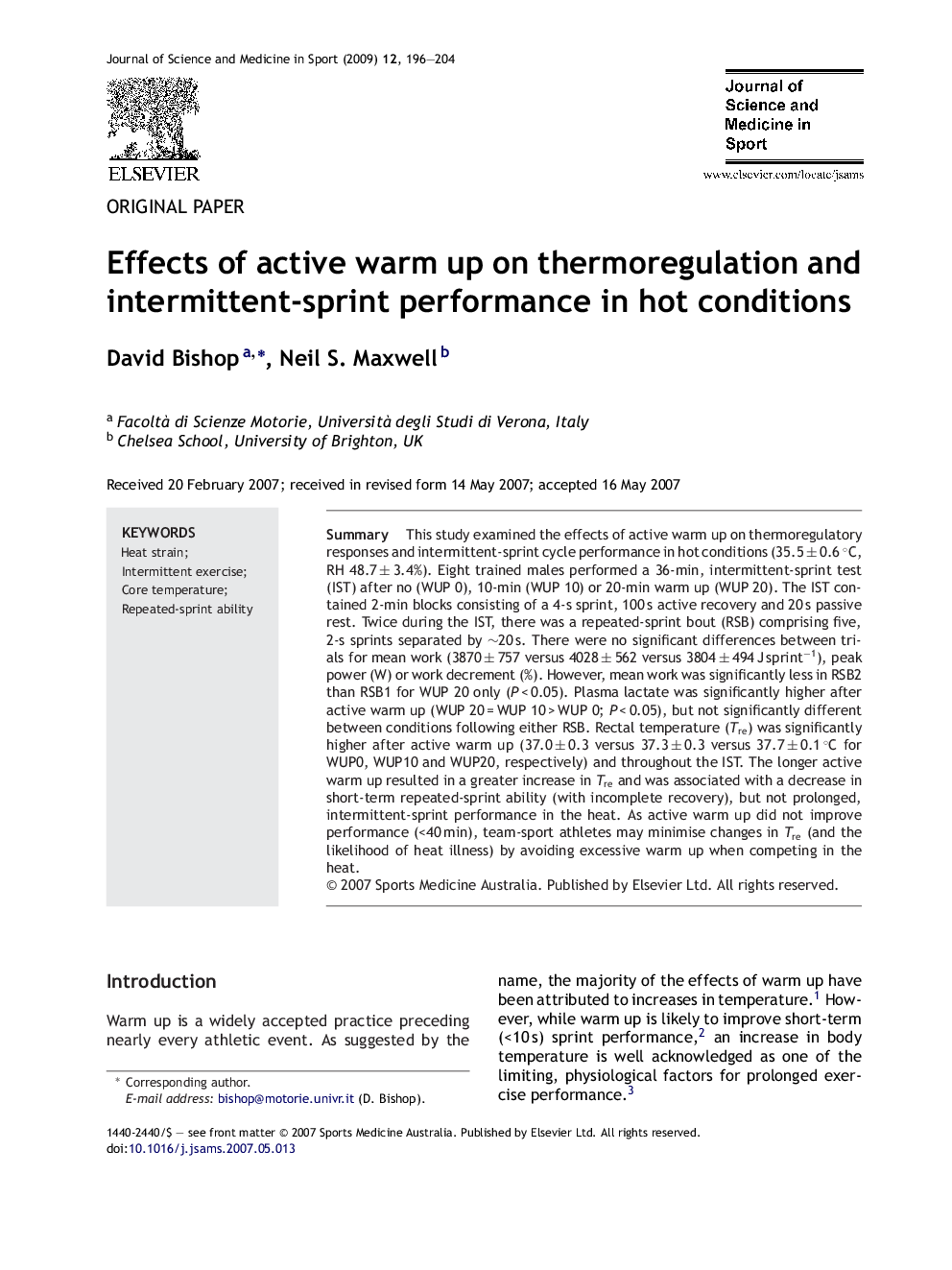| Article ID | Journal | Published Year | Pages | File Type |
|---|---|---|---|---|
| 2708810 | Journal of Science and Medicine in Sport | 2009 | 9 Pages |
SummaryThis study examined the effects of active warm up on thermoregulatory responses and intermittent-sprint cycle performance in hot conditions (35.5 ± 0.6 °C, RH 48.7 ± 3.4%). Eight trained males performed a 36-min, intermittent-sprint test (IST) after no (WUP 0), 10-min (WUP 10) or 20-min warm up (WUP 20). The IST contained 2-min blocks consisting of a 4-s sprint, 100 s active recovery and 20 s passive rest. Twice during the IST, there was a repeated-sprint bout (RSB) comprising five, 2-s sprints separated by ∼20 s. There were no significant differences between trials for mean work (3870 ± 757 versus 4028 ± 562 versus 3804 ± 494 J sprint−1), peak power (W) or work decrement (%). However, mean work was significantly less in RSB2 than RSB1 for WUP 20 only (P < 0.05). Plasma lactate was significantly higher after active warm up (WUP 20 = WUP 10 > WUP 0; P < 0.05), but not significantly different between conditions following either RSB. Rectal temperature (Tre) was significantly higher after active warm up (37.0 ± 0.3 versus 37.3 ± 0.3 versus 37.7 ± 0.1 °C for WUP0, WUP10 and WUP20, respectively) and throughout the IST. The longer active warm up resulted in a greater increase in Tre and was associated with a decrease in short-term repeated-sprint ability (with incomplete recovery), but not prolonged, intermittent-sprint performance in the heat. As active warm up did not improve performance (<40 min), team-sport athletes may minimise changes in Tre (and the likelihood of heat illness) by avoiding excessive warm up when competing in the heat.
